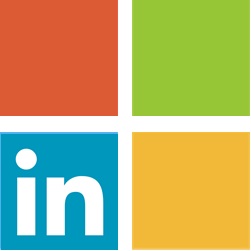Microsoft’s Acquisition Of LinkedIn Will Not Translate Into A Revolution Of Enterprise Social Networking

In a report, Forrester discussed arguments made by Microsoft regarding the potential benefits of the tie-up. There are some additional aspects that I also consider important when discussing the implications of the tie-up:
- LinkedIn's status of trusted independent platform for professional information exchange could be undermined. Although the deal, should it go through, would help Microsoft to strengthen its social networking services and professional content, there will be LinkedIn users that are not keen to become sucked into the Microsoft ecosystem as part of their social collaboration activities and abandon LinkedIn as active users.
- Microsoft must be much faster to decide on LinkedIn's strategy than it did with Skype. It took Microsoft several years to define its strategy for Skype, and Yammer for that matter. This slow response to sort out Skype's place in the Microsoft family slowed down Skype's momentum significantly. By the time the new Skype strategy was announced, most of the hardcore Skype users had migrated away towards other social collaboration platforms like WhatsApp, Facetime, or WeChat.
- Microsoft must redouble its mobile efforts. A large part of LinkedIn users’ activities are mobile based. Microsoft's weak position in mobile ecosystems could dramatically undermine LinkedIn's longer-term opportunities. If Microsoft underestimates the mobile dimension for LinkedIn, the future for LinkedIn could be very questionable. Users are fickle and there is no loyalty to outdated social media platforms.
- Integration could mean exclusion and run counter to efforts to enhance open collaboration. Microsoft claims that the deal would allow it to integrate Cortana into LinkedIn profiles and calendar features. This could give users background information on who will be in a meeting room. However, open APIs could ensure that LinkedIn could be integrated into Microsoft’s collaboration platform without having to be fully owned by Microsoft. Moreover, it is not clear if “integrated” personal professional information will be available only to users of Microsoft office tools. What happens to the user experience if you come to a client that is using Google for Work?
Enterprise social networking will not be revolutionized by software tools, but by management innovation
Microsoft’s intended acquisition of LinkedIn is touted by some as a revolution of enterprise social networking. I don’t see that. Software tools can only enhance collaboration between people. The tools by themselves cannot trigger employees' initiative, creativity, and passion. However, to draw on Gary Hamel: many managers still pursue a 1950s management style that focuses on enforcing obedience, diligence, and best-practice application only. This is not sufficient to master the digital age.
For enterprise social networking to generate sustainable positive business outcomes, we need to see fundamental management innovation to create a completely new work environment for employees that makes them feel comfortable to experiment and to take more self-responsibility for their actions.
